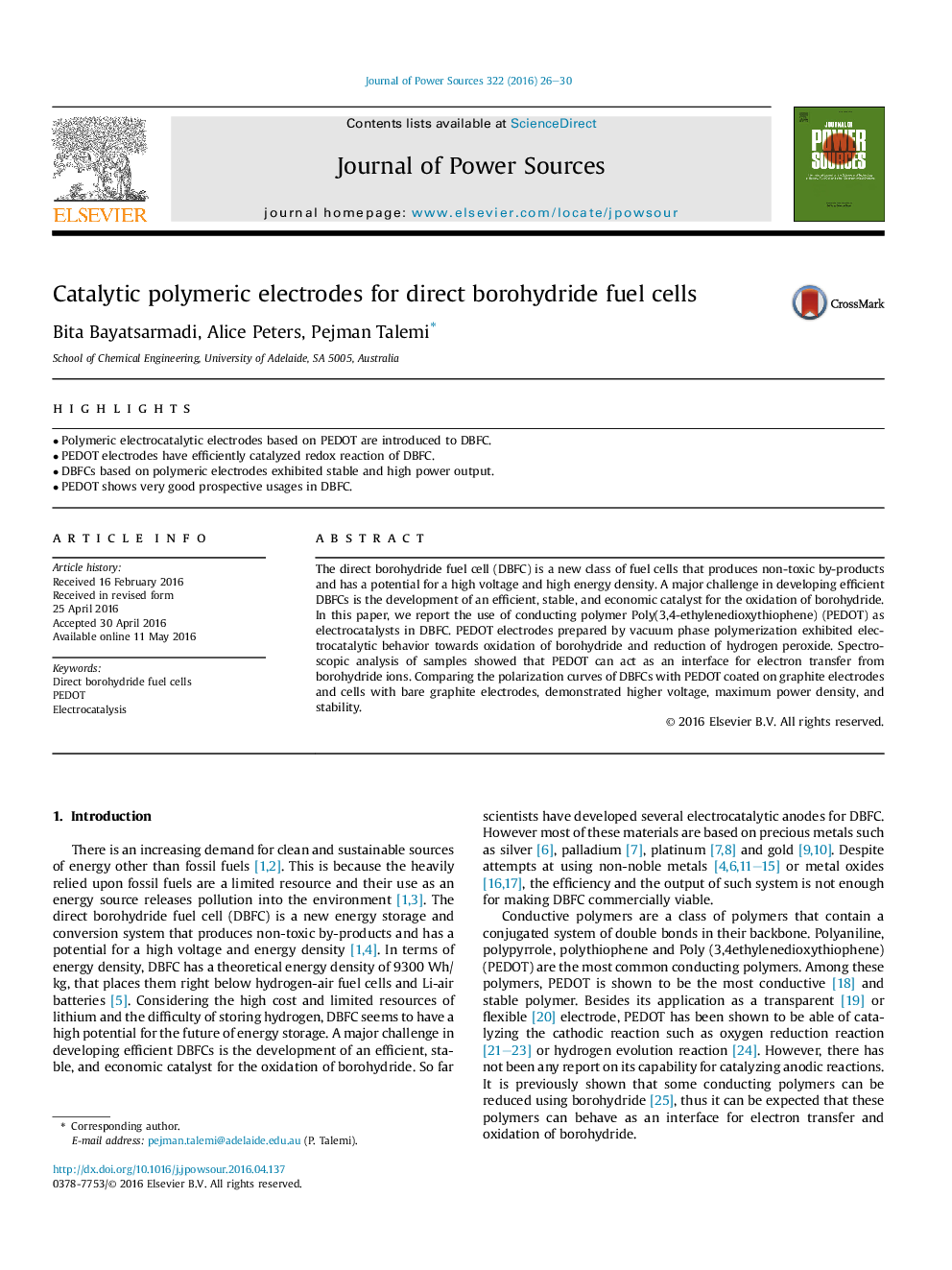| Article ID | Journal | Published Year | Pages | File Type |
|---|---|---|---|---|
| 1283573 | Journal of Power Sources | 2016 | 5 Pages |
•Polymeric electrocatalytic electrodes based on PEDOT are introduced to DBFC.•PEDOT electrodes have efficiently catalyzed redox reaction of DBFC.•DBFCs based on polymeric electrodes exhibited stable and high power output.•PEDOT shows very good prospective usages in DBFC.
The direct borohydride fuel cell (DBFC) is a new class of fuel cells that produces non-toxic by-products and has a potential for a high voltage and high energy density. A major challenge in developing efficient DBFCs is the development of an efficient, stable, and economic catalyst for the oxidation of borohydride. In this paper, we report the use of conducting polymer Poly(3,4-ethylenedioxythiophene) (PEDOT) as electrocatalysts in DBFC. PEDOT electrodes prepared by vacuum phase polymerization exhibited electrocatalytic behavior towards oxidation of borohydride and reduction of hydrogen peroxide. Spectroscopic analysis of samples showed that PEDOT can act as an interface for electron transfer from borohydride ions. Comparing the polarization curves of DBFCs with PEDOT coated on graphite electrodes and cells with bare graphite electrodes, demonstrated higher voltage, maximum power density, and stability.
